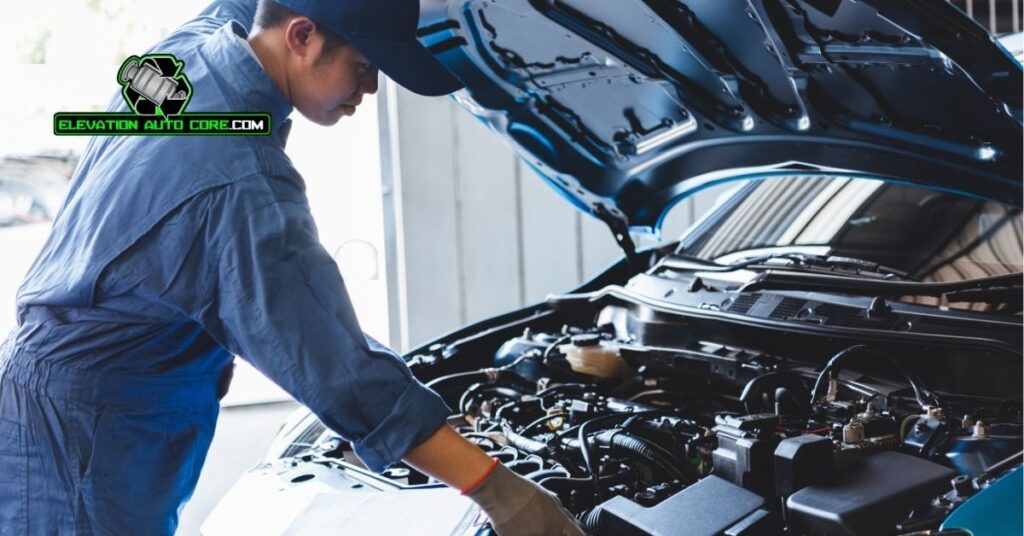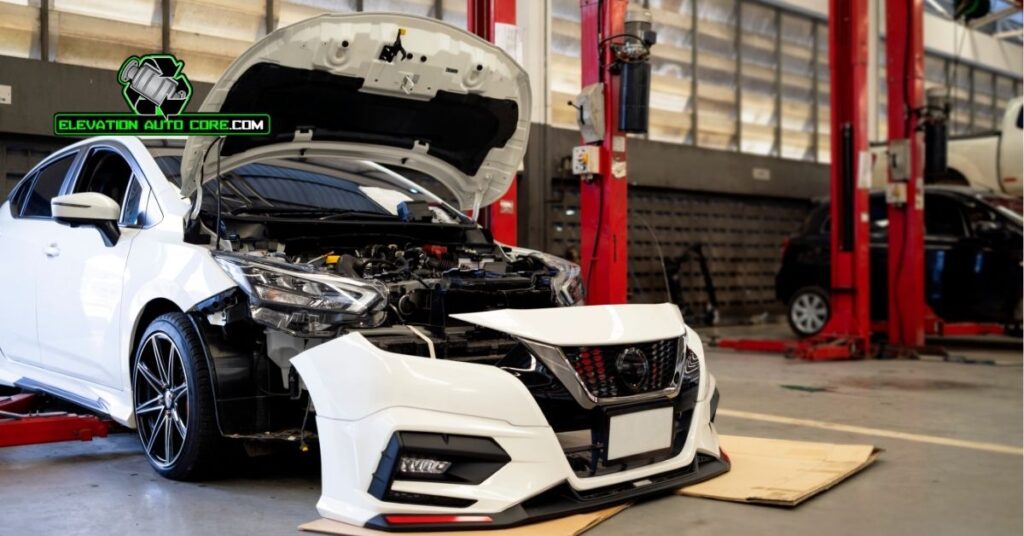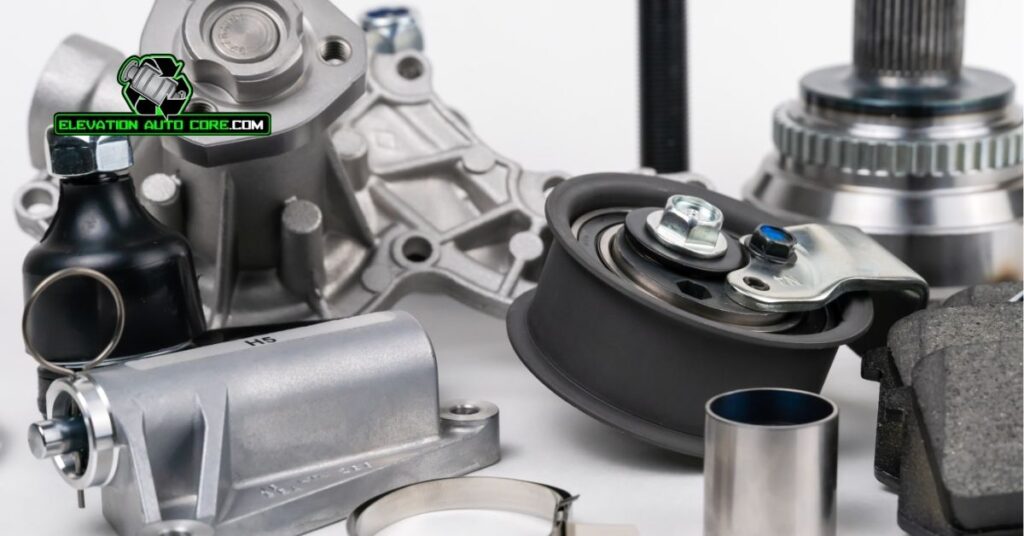How do you find the right parts for your car without wasting time or money? With so many options available, it’s easy to feel overwhelmed or unsure about what’s compatible with your vehicle. Don’t worry—by understanding a few key steps, you’ll confidently track down the perfect parts and get back on the road in no time.
Understanding Your Car’s Needs

Finding the right parts starts with thoroughly understanding your car. Evaluate key details about your vehicle to avoid purchasing incompatible or low-quality components.
Identifying Your Car Model And Make
Begin by noting your car’s exact make and model. Manufacturers often produce different variants of the same model, so focus on the production year, trim level, and engine type. For example, a 2018 Toyota Camry SE requires different parts than its LE trim. Check your owner’s manual or the manufacturer’s website for accurate details. Reliable information helps you narrow your search efficiently.
Models and trims directly impact compatibility. Parts like brake pads, air filters, and spark plugs vary even within a single model year. Double-check these identifiers before shopping to avoid returns or installation issues.
Knowing Your Vehicle Identification Number (VIN)
Use your VIN to access detailed vehicle information. This 17-character code contains the manufacturer, model, year, engine specs, and production details. Locate it on your dashboard near the windshield or on the driver-side door frame. You can also reference your insurance records.
VIN-based searches improve accuracy when sourcing parts such as transmission components or electrical systems, which often depend on production variations. Many online parts retailers and service centers offer VIN-based lookup tools for precise results. Always verify the part number provided to ensure it’s an exact match.
Exploring Different Options For Car Parts

Finding suitable parts requires comparing various available options. Assess their quality, compatibility, and cost to make informed decisions before purchasing.
Genuine Parts Vs Aftermarket Parts
Genuine parts are made by your car’s manufacturer and specifically designed for your vehicle. They guarantee perfect fit and are often backed by a manufacturer warranty, ensuring reliability. These parts may cost more, but their quality and compatibility can justify the price.
Aftermarket parts come from third-party manufacturers. Many of these are cheaper than genuine parts, with some offering equal quality. But, compatibility varies depending on the brand, so verify the specifications carefully. Examples include replacement brake pads or alternators from reputable aftermarket brands.
Choosing Between New And Used Parts
New parts are unused components directly sourced from manufacturers or authorized dealers. These parts offer optimal performance and long-term durability. They suit critical systems like the engine or suspension, where reliability matters most.
Used parts originate from salvage yards or dismantled vehicles. While these are more affordable, their condition varies, making it essential to inspect them thoroughly before use. For non-critical parts like mirrors or interior trims, used options can be budget-friendly answers.
Researching The Right Part For Your Car
Finding the correct part involves using reliable resources and seeking knowledgeable input. Combining online research with expert advice helps you ensure quality and compatibility.
Checking Online Resources And Reviews
Explore automotive forums to gather insights from other car owners with similar needs. Search official websites for detailed specifications on parts designed for your car’s make and model. Visit online retailers offering VIN-based lookup tools to confirm compatibility before making a purchase. Review customer feedback on exact parts to evaluate reliability and performance. Focus on websites with verified reviews to avoid misinformation.
Consulting With Experts Or Mechanics
Talk to mechanics familiar with your vehicle for recommendations on the best parts. Visit local auto shops for advice on sourcing genuine or high-quality aftermarket components. Contact dealerships for information on OEM parts and potential replacements. When discussing options, share your VIN and other details to get precise guidance. Trusting expert input ensures the components meet your car’s needs effectively.
Buying Car Parts: Where And How

Finding the right place to buy car parts involves balancing convenience, cost, and quality. Prioritize sources that ensure compatibility with your vehicle to avoid costly mistakes.
Shopping Online Vs Local Stores
Online retailers provide access to a broad inventory, often including hard-to-find parts. Websites like RockAuto and AutoZone offer VIN-based lookup tools, helping you locate parts compatible with your vehicle. Customer reviews and ratings on these platforms provide detailed insights into part quality and performance. Ordering online also lets you compare prices from multiple stores without leaving home.
Local stores, like O’Reilly Auto Parts or Advance Auto Parts, allow you to inspect parts before purchase. In-person staff can verify compatibility when you provide details such as your car’s make, model, and VIN. Also, local stores often carry essential items immediately, making them suitable for urgent repairs. Some physical stores even price-match online retailers, giving you the best of both worlds.
Comparing Prices And Warranties
Evaluating prices ensures you get value without overpaying. Genuine parts from manufacturers tend to cost more but deliver unmatched reliability. Aftermarket parts offer affordability but require thoroughly checking specifications and customer feedback. Compare pricing across retailers like Amazon, eBay Motors, or your local shop to find the best option.
Warranties directly impact the long-term value of the purchase. Online stores often advertise extended warranties on exact brands, which can be advantageous. Local stores, on the other hand, may provide personal assistance for returns or exchanges under warranty terms. Always confirm the warranty period and coverage before finalizing your purchase to avoid unexpected issues later.
Tips For Avoiding Counterfeit Or Low-Quality Parts

Finding authentic, high-quality car parts protects your vehicle’s performance and lifespan. By carefully checking sources and information, you can avoid purchasing parts that compromise safety or durability.
Recognizing Authentic Parts
Genuine parts usually come with packaging that includes the manufacturer’s logo and part number. Always verify these details before purchasing. Trusted sellers and authorized dealers provide the best assurance for authentic parts. Online marketplaces often carry risks, so check seller reviews and ratings before committing. Request invoices or receipts when buying to ensure the parts’ legitimacy. Look for certification marks or holograms as additional proof of authenticity.
Ensuring Proper Compatibility
Parts that don’t match your car’s specifications can create mechanical issues. Use your Vehicle Identification Number (VIN) to confirm part compatibility, as it provides precise information. Cross-check part numbers with the manufacturer’s catalog to avoid mismatches. Speak with authorized service centers or mechanics to validate the fit and functionality of the part you’re considering. Always verify that the part aligns with your vehicle’s make, model, and engine type before finalizing the purchase.
Conclusion
Finding the right parts for your car doesn’t have to be a stressful process. With the right approach and tools, you can ensure compatibility, quality, and value for your investment. By understanding your car’s exact needs, leveraging your VIN for accurate searches, and consulting trusted resources, you’ll make confident decisions that protect your vehicle’s performance and longevity.
Whether you choose genuine or aftermarket parts, focus on authenticity and reliability to avoid costly mistakes. Take the time to research, compare options, and seek expert advice when needed. This thoughtful approach will save you time, money, and potential headaches, keeping your car running smoothly for years to come.

